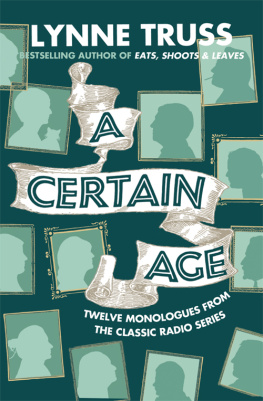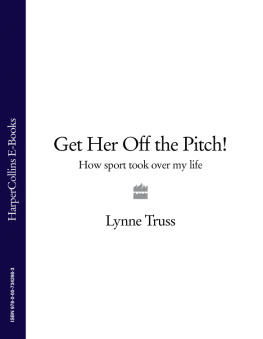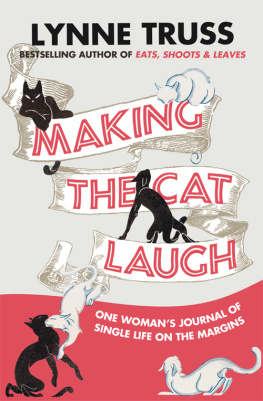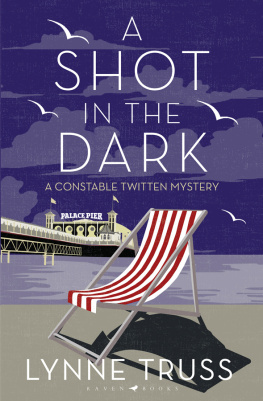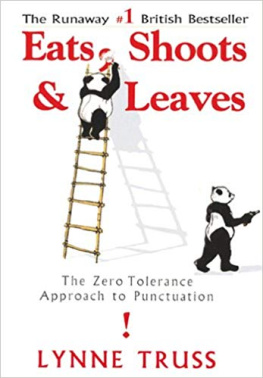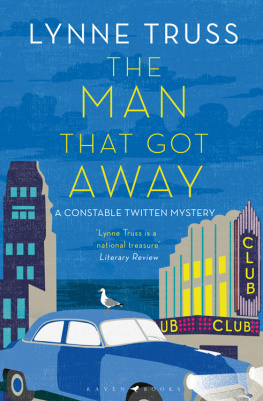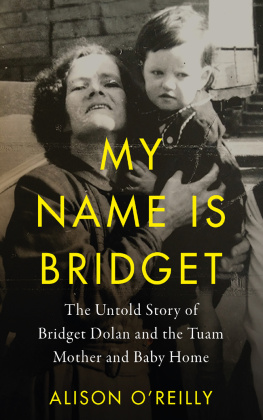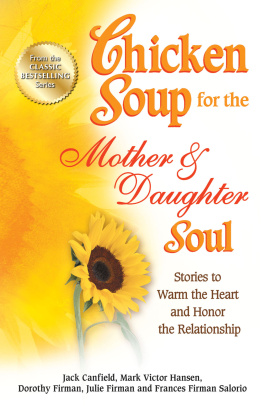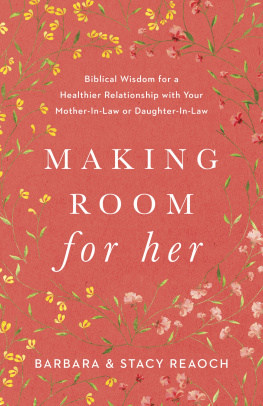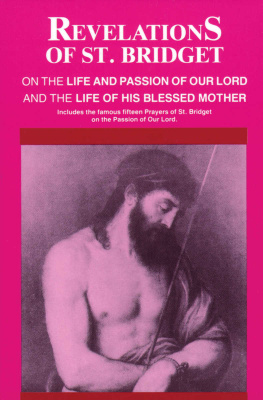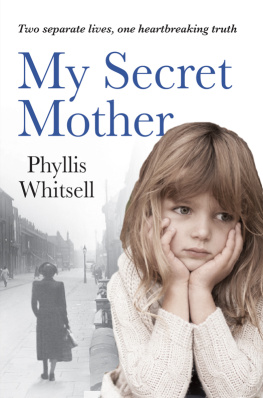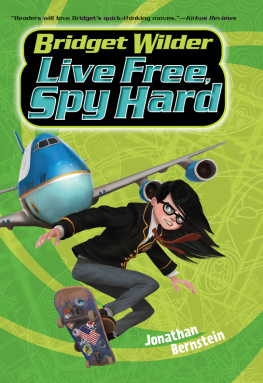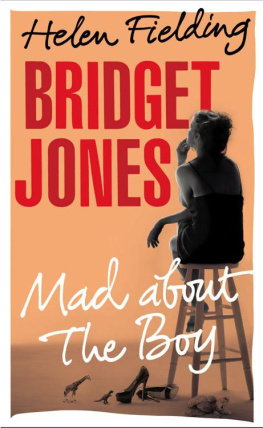Truss - A Certain Age
Here you can read online Truss - A Certain Age full text of the book (entire story) in english for free. Download pdf and epub, get meaning, cover and reviews about this ebook. City: Great Britain, year: 2010, publisher: HarperCollins Publishers;Fourth Estate, genre: Detective and thriller. Description of the work, (preface) as well as reviews are available. Best literature library LitArk.com created for fans of good reading and offers a wide selection of genres:
Romance novel
Science fiction
Adventure
Detective
Science
History
Home and family
Prose
Art
Politics
Computer
Non-fiction
Religion
Business
Children
Humor
Choose a favorite category and find really read worthwhile books. Enjoy immersion in the world of imagination, feel the emotions of the characters or learn something new for yourself, make an fascinating discovery.
- Book:A Certain Age
- Author:
- Publisher:HarperCollins Publishers;Fourth Estate
- Genre:
- Year:2010
- City:Great Britain
- Rating:3 / 5
- Favourites:Add to favourites
- Your mark:
- 60
- 1
- 2
- 3
- 4
- 5
A Certain Age: summary, description and annotation
We offer to read an annotation, description, summary or preface (depends on what the author of the book "A Certain Age" wrote himself). If you haven't found the necessary information about the book — write in the comments, we will try to find it.
Truss: author's other books
Who wrote A Certain Age? Find out the surname, the name of the author of the book and a list of all author's works by series.
A Certain Age — read online for free the complete book (whole text) full work
Below is the text of the book, divided by pages. System saving the place of the last page read, allows you to conveniently read the book "A Certain Age" online for free, without having to search again every time where you left off. Put a bookmark, and you can go to the page where you finished reading at any time.
Font size:
Interval:
Bookmark:
LYNNE TRUSS
A Certain Age

These monologues were written for BBC Radio Four, and appeared in two series. The first, which comprised all the female voices, was broadcast in 2002. The second series (the men) followed in 2005. Many were written specifically for the actors who played them, so to that extent are collaborations. All were produced by Dawn Ellis, of BBC Radios Light Entertainment department, who put as much of her heart and soul into them as I did. Since the whole point of a monologue is that it should speak for itself, I hope these pieces dont require much by way of introduction. Id just like to mention a few things to put them in context.
Since the advent of the video diary, weve become so accustomed to stories told in this particular straight-to-audience form that you could be forgiven for assuming (as I did when I started writing mine) that it had been knocking around since ancient times. How those Athenian theatre festival-goers were delighted, for example, when, over a series of well-crafted scenes, the goddess Athena endured and reported (to no one in particular) the roller-coaster emotions involved in setting up her successful high-street poster company. But, in fact, no such play seems to have come down to us. When Alan Bennett wrote his first Talking Heads in the late 1980s, it seems he was pioneering a quite new dramatic form.
Up to that point, a monologue could mean any number of things: to a student actor, it was any uninterrupted speech learned for audition purposes; to a literary critic, it was a type of Victorian poem. Of course, there were stage monologues, both in the legitimate theatre and in the music hall, but they were unlike Bennetts in two respects: first, they were generally addressed to a particular, unseen person; and second, they were fixed in time. As recently as 1983, a critic wrote that the monologue lacks the resources to develop the temporal dimension, the notion of life as a continuing process of growth and change. But then Bennett came along and divided his monologues into scenes, and suddenly the temporal dimension was added, just like that. There was a simple fade to black, then a fade up again. At a stroke, this completely changed the kind of story that could be told.
My own monologue career started in the mid-1990s, when I was asked to write scripts for the Natural History Unit in Bristol. A radio series called Dear Sir Yours, Ruffled was to put the case for six unloved common British species, by having them voice their own story, as if in rather furious letters to The Times. My job was to tackle two of these stout defences: an urban fox, for Tony Robinson, and a grey squirrel, for June Whitfield. Instantly, I was in heaven. Do you think that old teabag is going begging? the fox interrupted himself, before he gulped it down. I had him shudder at the thought of Basil Brush: Those dead eyes, you know, like buttons. And in between the jokes, of course, there was lots of natural history information, such as the disgusting news that people used to rub squirrel brain on the gums of teething babies.
A series called Tidal Talk from a Rock Pool followed (I had nothing to do with these titles), and I had another field day with that. We had Bill Wallis playing a periwinkle, Geoffrey Palmer as a hermit crab, Alison Steadman as an anemone (My enemys anemone is my friend), Greg Proops as a goby fish, Judi Dench as a limpet and Tony Robinson as a lugworm. I made the periwinkle a kind of music hall comedian trying to cheer up all the others. So the big shark says, Heres that sick squid I owe you, ha ha. All right, suit yourselves; Im wasted here.
The animal I cared most about in that series was the limpet: stuck, lonely and bitter, on its rock while the salt waves surged and the far horizon beckoned. Moscow! Moscow! Moscow! she cried. She browsed algae from the rock, gossiped about the lewdness of the American slipper limpet, and quoted from Tennyson and Oscar Wilde. Judi Dench chose a Celia Johnson voice, which was superb; she also gamely stuffed her cheeks with Maltesers to represent the algae-browsing activity. The limpet went for a short walk, which meant she had to lift her shell and shuffle an inch or two, making comical straining and exertion noises. I dont know if youve ever had the misfortune to befriend a limpet, she confided in a whisper, but they are notoriously hard to shake off. She remembered in despair that her mother once upbraided her, in her youth, for her unfortunate habit of dwelling on things.
Maybe Ive been making heavy weather of this monologue-writing, but the image of the limpet blindly shuffling its shell along, while panting and groaning, does quite resemble what it was like to inhabit each of the twelve characters in this book. You may have seen the movie Being John Malkovich, in which a mysterious portal behind a filing cupboard allows people to occupy the brain of John Malkovich for ten minutes at a time, seeing the world through his eyes, and then (if they concentrate very, very hard), getting him to say things, or move his arm. Writing monologues is similar to that. Ive varied the form as much as I can in these twelve: there are plotty ones and organic ones; twisty and straightforward; light and dark; redemptive and non-redemptive. One of them The Husband is simply exposition. But all of them required the same strenuous mental puppeteering. These are not all nice people, by the way; but thats part of the point of doing it.
From the technical point of view, what I was most surprised to learn about the monologue is that there are all sorts of stories that cant be told this way. In proposing the mens series, for example, I came up with this idea for The Son, which turned out to be unworkable:
The Son
Jason is a Kiwi vet, unmarried, straight, and popular with the pet-ladies of his West Country parish because of his understanding tone. They are all in love with him: he seems to be refreshingly in touch with his feminine side. It doesnt even bother them when their pets fail to flourish under his care. But when he learns that his mother has died in New Zealand, he goes to pieces, and is dropped by everyone. It turns out that his feminine-side appeal has limits.
Tone: arch
Theme: access to feminine emotions
Ideal casting: Martin Clunes
Now, there are problems with this that anyone can spot Martin Clunes with a New Zealand accent being just one of them. But the main problem is that the protagonist of this story cant actually tell it, because its mainly about how he is unconsciously perceived by other people. If he knows these women all adore him for his feminine side, the theme stops being access to emotions and becomes manipulativeness or even vanity. Anyway, I quickly dropped this idea, and instead wrote a Son that was about a light-hearted photographers very happy and matter-of-fact relationship with his dead father, which was possibly my favourite of the whole twelve. By way of counter-example, there is this:
The Married Man
Jim is an American mystery writer living in London. His stories are middlebrow puzzle mysteries, and he enjoys being the omniscient author in command of all the facts. In his personal life, he is conducting a casual long-term affair which he thinks his wife doesnt know about. She does. She also always guesses whodunnit by about the 50th page, which ought to tell him something about how smart she is. In the end, of course, its his own inability to pick up clues that is his downfall.
Tone:light
Theme: control
Ideal casting: Kevin Spacey
This proposal bears a pretty close resemblance to the piece as it turned out, except for the madly unrealistic Kevin Spacey thing. The reason it worked was that its theme was, actually, not control but self-deception. The characters in this book all speak for themselves, but the interest for the person reading or listening to them is always, primarily, in ascertaining and judging how well they know or understand their own story. Alan Bennett describes his
Next pageFont size:
Interval:
Bookmark:
Similar books «A Certain Age»
Look at similar books to A Certain Age. We have selected literature similar in name and meaning in the hope of providing readers with more options to find new, interesting, not yet read works.
Discussion, reviews of the book A Certain Age and just readers' own opinions. Leave your comments, write what you think about the work, its meaning or the main characters. Specify what exactly you liked and what you didn't like, and why you think so.

